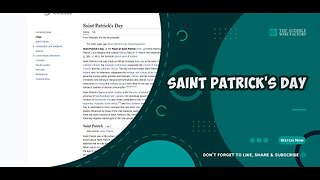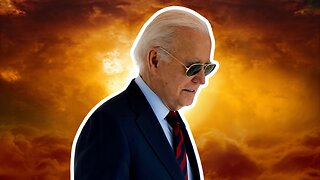James VI and I was King of Scotland as James VI from 24 July 1567 and King of England and
James VI and I (James Charles Stuart) was King of Scotland as James VI from 24 July 1567 and King of England and Ireland as James I from the union of the Scottish and English crowns on 24 March 1603 until his death in 1625. The kingdoms of Scotland and England were individual sovereign states, with their own parliaments, judiciaries, and laws, though both were ruled by James in personal union.
James was the son of Mary, Queen of Scots, and a great-great-grandson of Henry VII, King of England and Lord of Ireland, and thus a potential successor to all three thrones. He succeeded to the Scottish throne at the age of thirteen months, after his mother was compelled to abdicate in his favour. Four different regents governed during his minority, which ended officially in 1578, though he did not gain full control of his government until 1583. In 1603, he succeeded Elizabeth I, the last Tudor monarch of England and Ireland, who died childless. He continued to reign in all three kingdoms for 22 years, a period known as the Jacobean era, until his death in 1625. After the Union of the Crowns, he based himself in England (the largest of the three realms) from 1603, returning to Scotland only once, in 1617, and styled himself "King of Great Britain and Ireland". He was a major advocate of a single parliament for England and Scotland. In his reign, the Plantation of Ulster and English colonisation of the Americas began.
At 57 years and 246 days, James's reign in Scotland was the longest of any Scottish monarch. He achieved most of his aims in Scotland but faced great difficulties in England, including the Gunpowder Plot in 1605 and repeated conflicts with the English Parliament. Under James, the "Golden Age" of Elizabethan literature and drama continued, with writers such as William Shakespeare, John Donne, Ben Jonson, and Francis Bacon contributing to a flourishing literary culture. James himself was a prolific writer, authoring works such as Daemonologie (1597), The True Law of Free Monarchies (1598), and Basilikon Doron (1599). He sponsored the translation of the Bible into English later named after him, the Authorized King James Version, and the 1604 revision of the Book of Common Prayer. Anthony Weldon claimed that James had been termed "the wisest fool in Christendom", an epithet associated with his character ever since. Since the latter half of the 20th century, historians have tended to revise James's reputation and treat him as a serious and thoughtful monarch. He was strongly committed to a peace policy, and tried to avoid involvement in religious wars, especially the Thirty Years' War that devastated much of Central Europe. He tried but failed to prevent the rise of hawkish elements in the English Parliament who wanted war with Spain. He was succeeded by his second son, Charles I.
CHILDHOOD
BIRTH
James was the only son of Mary, Queen of Scots, and her second husband, Henry Stuart, Lord Darnley. Both Mary and Darnley were great-grandchildren of Henry VII of England through Margaret Tudor, the older sister of Henry VIII. Mary's rule over Scotland was insecure, and she and her husband, being Roman Catholics, faced a rebellion by Protestant noblemen. During Mary's and Darnley's difficult marriage, Darnley secretly allied himself with the rebels and conspired in the murder of the queen's private secretary, David Rizzio, just three months before James's birth.
James was born on 19 June 1566 at Edinburgh Castle, and as the eldest son and heir apparent of the monarch automatically became Duke of Rothesay and Prince and Great Steward of Scotland. Five days later, an English diplomat Henry Killigrew saw the queen, who had not fully recovered and could only speak faintly. The baby was "sucking at his nurse" and was "well proportioned...
LINK TO ARTICLE: http://en.wikipedia.org/wiki/James_VI_and_I
TAGS: James VI and I, 16th-century Scottish peers, High Stewards of Scotland, Scottish scholars and academics, Scottish princes, Scottish people of French descent, Scottish non-fiction writers, Protestant monarchs, People of the Stuart period, People of the Anglo-Spanish War (1585–1604), Nobility from Edinburgh, People associated with the Gunpowder Plot, Patrons of literature, Modern child rulers, Knights of the Garter, House of Stuart, English pretenders to the French throne, Dukes of Rothesay, Dukes of Albany, Demonologists, Castalian Band, Burials at Westminster Abbey, Anglican philosophers, 17th-century Scottish writers, 16th-century male writers, 16th-century Scottish writers, 16th-century Scottish poets, 17th-century Irish monarchs, 17th-century English monarchs, 17th-century Scottish monarchs, 16th-century Scottish monarchs, James VI and I
#GeneralKnowledge #AudibleWikiFactory #Audible #Wikipedia #JamesVIandI
-
 34:34
34:34
The Audible Wiki Factory
1 year agoSaint Patrick's Day, or the Feast of Saint Patrick, is a religious and cultural holiday held on
693 -
 2:14:28
2:14:28
Matt Kohrs
14 hours agoTrump BODIES Biden, The Fall of Memes & The Week Ahead || The MK Show
25.2K4 -
1:48:15
jeffahern
3 hours agoMonday Madnes with Jeff Ahern (6AM Pacific)
9.26K3 -
 29:57
29:57
Cody and Kellie
17 hours agoWhy a Truck Camper? Honest Six Month Review, Living in a Truck Camper
31.5K24 -
 9:50
9:50
DepressedGinger
18 hours agoBiden *DENIES* polls, somehow thinks he's beating Trump
37.9K79 -
 6:42
6:42
Vehicles Unlimited
21 hours ago2024 Chevrolet Trax Activ // The Best Compact SUV This Year?
43.8K6 -
 29:54
29:54
TampaAerialMedia
22 hours agoMiami Travel Guide - Downtown, Key Biscayne, Coral Gables
40K12 -
 9:06
9:06
Mally_Mouse
19 hours agoCongress is getting trashy
43.9K61 -
 1:15:15
1:15:15
TheTapeLibrary
16 hours agoScary Stories On A Rainy Night (Rain Sounds | Relaxing Horror Stories To Fall Asleep To)
22.5K4 -
 3:41:38
3:41:38
The Jimmy Dore Show
1 day agoThe Jimmy Dore Live Panel Show
190K201